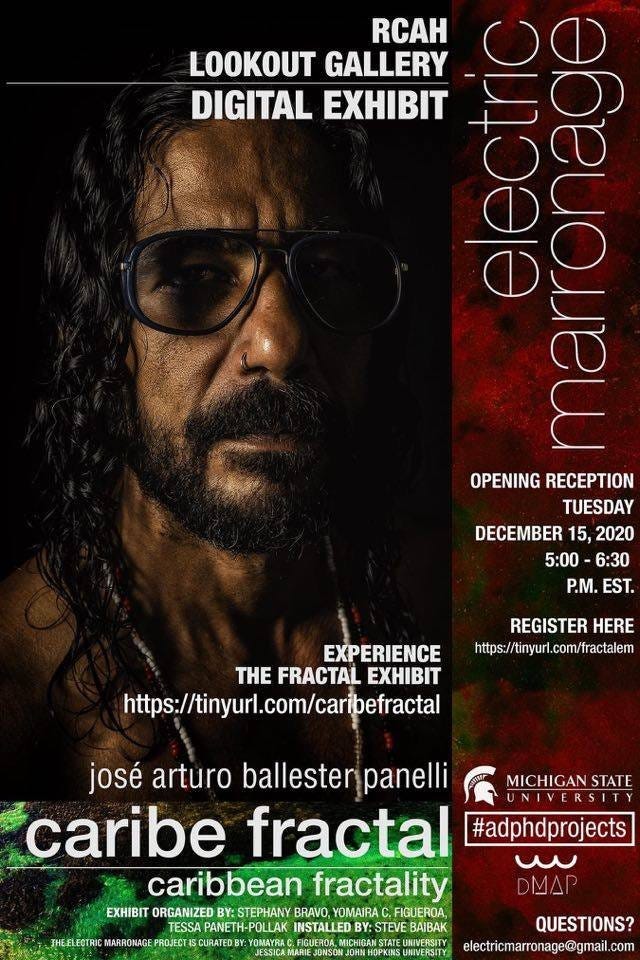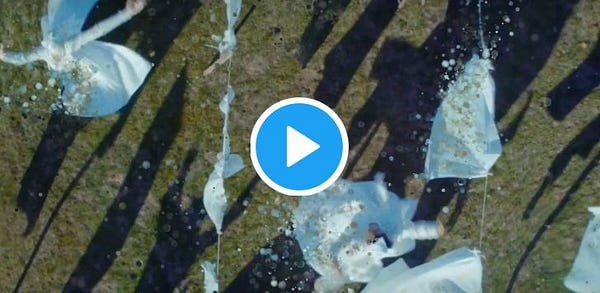This message is long, but I hope you'll bear with me as it includes updates on the hard work of our members!
This summer, I had the pleasure of launching LifexCode: Digital Humanities Against Enclosure, a digital practice lab committed to exploring and creating public scholarship at the intersection of history, Black/Ethnic Studies, and social justice.(1)
Joined by Christina Thomas as Program Manager, LifexCode offers "a grammar of refusal and a language of freedom for the [digital] humanities." Through the Taller, workshops, incubators, public events, creative projects, peer mentoring, and more, LifexCode incubates community accountable, decolonial, and antiracist projects and praxis in digital form. It is public scholarship in service of the human in our humanities and accountable to an ethics of justice, reparation, and care. You can read our guiding principles here, principles informed by the 2019 Loophole of Retreat symposium and exhibit at the Solomon R. Guggenheim Museum organized by Simone Leigh, Tina Campt, and Saidiya Hartman.(2)
The Fall 2020/Spring 2021 guiding keyword is INSURGENCY.
Much of the heavy lifting over the last few months has been in the hands of of LifexCode's graduate student members, hailing from University of Chicago, Harvard, University of California at Berkeley, and Johns Hopkins. These students have spent hours researching, collaborating, writing, and building a community and collaborative scholarly practice. Delving deep into Black history, Black studies, and Black DH, they have:
Designed, hosted and co-hosted over eleven workshops and public talks. Over 480 people from around the world registered for the fall workshops alone.
Explored hundreds of archival documents either for digitization (Keywords: Blassingame) or already digitized (Keywords: Marronage, LA Colonial)
Built libraries of secondary scholarship for further study (Taller Electric Marronage: Fugitive Library).
Made connections with archivists, librarians, and publishers around the country.
Collaborated on public projects (Taller Electric Marronage) and on group research.
Published projects (Taller Electric Marronage: #SayHerName Memorial, Fugitive Handbook, Map of the Fugitive South) and continue work on others in progress (Rachel Flowers archive, Black Church documentary).
They have made this first semester of LifexCode a tremendous success. I want to thank them for their work and highlight some of their achievements below.
Taller Electric Marronage (EM)
Members: Dr. Yomaira C. Figueroa (Co-Director), Christina Thomas (Lead Editor), Halle Ashby, Kelsey Moore, Ayah Nurridin, Sarah Bruno (Madison), Jada Similton (MSU), Stephany Bravo (MSU)
Taller Electric Marronage is a digital project and collective directed by Jessica Marie Johnson and Dr. Yomaira S. Figueroa at Michigan State University that began Spring 2020. Members of EM (i.e. "Electricians") are students from Johns Hopkins, Michigan State, and University of Wisconsin at Madison. Electricians have hosted public talks and graduate student workshops with Black World scholars like Drs. Savannah Shange and Randi Gill-Saddler. They have created two podcasts based on those visits and interviewing those scholars. They have run a digital publication with regular blog posts by themselves alongside solicited guest blog posts averaging 600 words a post. They shifted seamlessly to online programming after the quarantine and have continued to host and co-host events. They've organized or co-organized events with scholars like Dr. Joshua Rothman on the Freedom on the Move project, Dr. Jo Guildi on topic modeling, Dr. Brandi Locke on the Colored Conventions Project (all co-hosted with the Digital History Workshop); with Dr. Alex Gil on rapid response strategies and the digital tool Wax, Dr. Marisa Parham, the Director of the African American Digital Humanities Initiative (AADHum) at University of Maryland on Twine. They concluded the semester with a major event diving deep into the LifexCode keyword "Insurgency" and joined by Drs. Aleia Brown, Assistant Director of (AADHum), Jennifer Ferretti of the Maryland Institute College of Art and activist/community archivist Bilphena Yawhon as moderator. And, despite COVID, they've welcomed the Taller's inaugural artist-in-residence: Jose Arturo Ballester, curating his work across time and space to create a virtual and in-person exhibit called Caribe Fractal/Fractal Caribbean.
Throughout, the Electricians have also created projects exploring themes of marronage, life, resistance, and escape. Some of these projects include: the #SayHerName memorial (Christina Thomas), the Fugitive Handbook (led by Halle Ashby), a Fugitive's Map of the Black South (Kelsey A. Moore), curating the Caribe Fractal/Fractal Carribbean exhibit with Jose Arturo Ballester (Stephany Bravo), and building the Fugitive Library for on-going study.
In Spring 2021, this work will continue as we welcome artist-in-residence Rebecca Mwase to the Taller. Her inaugural artist talk/workshop will be in February at the Critical Conversations on Reproductive Health/Care: Past, Present, and Future, a virtual conference hosted by the School of Public Health and organized by Dr. Elizabeth O'Brien (JHU, History of Medicine).
I cannot stress how hard this work is and how impressive it is that they've continued to build and create even in the middle of the current crisis. Thank you to the Electricians for your tremendous work! Follow the Taller on all social media (Twitter, IG, Facebook).
Metropolitan United Methodist Church History Project
Member/Lead: Christina Thomas
Led by Christina Thomas, and in celebration of Metropolitan United Methodist Church’s 195th Anniversary, this project examines this historic Black church’s vast past through film. Located on 1121 West Lanvale Street in West Baltimore, Metropolitan United Methodist Church was founded by Truman Pratt (1775-1877), a formerly enslaved man from Anne Arundel County, Maryland. With a nearly two century history in the city of Baltimore, this project documents the history of this church from its antebellum roots, its involvement in the Baltimore Civil Rights Movements, to its history today. Although digitization of the church records has been paused due to COVID-19, Christina spent the semester using existing documents to prepare a short film/documentary on the church's history. Screening of the film is TBA.
Rachel Helen Flowers: A Digital Exhibition
Member/Lead: Christina Thomas
Led by Christina Thomas, the Rachel Flowers Exhibit is being built using Omeka and based on original research and archival material that is not available online (some of this research has been published in “The Life of Rachel H. Flowers (1900-1988),” Brethren in Christ History and Life, published in August 2020. In 1916, Rachel Helen Flowers enrolled at Messiah Bible School and Missionary Training Home in Grantham, Pennsylvania becoming the first African American student to attend this institution. Born in Jacksonville, Florida, Rachel and her family migrated North settling a few miles outside of the school. She later moved to Philadelphia where she joined the movement against school segregation and the discrimination of Black teachers. This digital exhibition explores her archives—including school records, newspapers articles, which documented her activism in the City of Brotherly Love, and photographs. Building this archive continues with a debut slated for Summer 2021.
Keywords for Black Louisiana (Keywords)
Members of Digital Blassingame (Olivia Barnard - team leader, Robin McDowell (Harvard), Maya Koretzky in spring 2021)
Members of LA Colonial (Emma Bilski - team leader, Ellie Palazzolo, Leila Blackbird (UChicago), Olivia Barnard)
Members of Marronage (Halle Ashby - team leader, Greg Smaldone, Nicole Viglini (Berkeley))
Keywords for Black Louisiana is the container for three different but related digital research and practice subprojects (or "portals"): Digital Blassingame (Olivia Barnard at JHU and Robin McDowell at Harvard, and to be joined by Maya Koretzky in Spring 2021), Enslaved and Free in Gulf Coast Louisiana (i.e. LA Colonial with Emma Bilski, Ellie Palazzolo, and Olivia Barnard at JHU and Leila Blackbird at University of Chicago), and Archipelagos of Marronage (Halle Ashby and Greg Smaldone at JHU, and Nicole Viglini at University of California at Berkeley). The goal of the Keywords project is to create digital pathways, subject headings, and keywords to guide the study of the Black diasporic history of Gulf Coast Louisiana.
This semester, students spent time doing exploratory work building a corpus of data, reading secondary literature, and learning more about what digital tools are available to make the history of Black Louisiana come alive. Under the Digital Blassingame portal, researchers have been indexing historian John Blassingame's Black New Orleans, 1860-1880 (most recent printing: University of Chicago, 1975). From exploring the history of the archives Blassingame worked in and highlight the archivists who helped him along the way (Olivia Barnard) to deep research on the history of the images used in the text, the artists who penned them, and building a visual archive of *Black New Orleans* (Robin McDowell). Under the Marronage portal, researchers spent time with the Marronage dans le monde Atlantique: Sources et trajectories database extracting and organizing data on the thousand odd enslaved people who ran away from their owners in antebellum Louisiana. And under the LA Colonial portal, researchers have been exploring the Louisiana Colonial Documents Project, a database of upwards of 100,000 unique documents, to build a corpus of keywords themed around 18th century enslaved and free Black life and culture.

The work these researchers are doing is tremendously difficult. They are working in multiple languages (French and Spanish documents). The LA Colonial portal is transcribing 18th century cursive, a paleographic feat all on its own. They have embarked on independent excursions to archives like the Amistad despite the pandemic. Along with this research, the Keywords researchers have also been building their digital toolbox with workshops on Twine, Wax, and future workshops on Omeka and the Gale Scholars Lab to come (Spring 2021). In Spring 2021, this exploratory work will continue as Keywords moves towards prototyping creative projects enter summer 2021.
Inaugural LxC Incubator: Black Survival in the Ivory Tower
This fall, LifexCode also collaborated with the Black Graduate Student Association on its first incubator: "Black Survival in the Ivory Tower." This two-day workshop for Black graduate students at JHU explored issues of work-life balance, the experience of being marginalized within the academy, and building community beyond. The workshop was designed for black graduate students across the disciplines. Students were joined by Dr. Aimee Meredith Cox (humanities) and Dr. Moiya McInter (STEM) who offered specialized workshops based on disciplinary needs. The finale event was a guided meditation with Dr. Cox who offered meditative practices and breathing exercises as participants navigated this academic semester. Over the course of the semester, Program Manager Christina Thomas also hosted writing accountability spaces for black graduate students to support the unprecedented circumstances of navigating graduate school research during a pandemic. The goal is to host a Black Survival incubator at least once an academic year.
Please join me in congratulating these students for what they've done this spring and fall! There is so much more to be said about the work LifexCode members have been up to and will continue to do. It is a pleasure to direct this digital practice lab and embark on this work. We are excited for what is to come. Congratulations to all!
LifexCode is impossible without collaborations across multiple institutions. At MSU, we thank Professor Yomaira Figueroa and the College of Arts and Letters. At JHU, thank you to the History Department, especially the Black World Seminar, Megan Zeller and Jennifer Stanfield; the Digital History Workshop, Sheridan Libraries (especially Margaret Burri), the Museums and Society Program (especially Jennifer Kingsley), and the Billie Holiday Project for Liberation Arts.
To the extent LifexCode has had any success this fall, it is due to the organizing and leadership of Christina Thomas as Program Manager. Thank you for your scholarly brilliance, skill and guidance.
Stay safe,
Jessica Marie Johnson
Director, LifexCode: DH Against Enclosure
1. For more on digital practice, see Johnson, Jessica Marie. “4DH + 1 Black Code / Black Femme Forms of Knowledge and Practice.” American Quarterly 70, no. 3 (September 29, 2018): 665–70.
2. Papers presented during the Guggenheim event were published in the December 2019 issue 105 of e-flux journal. See Campt, Leigh, and Hartman eds., The Loophole of Retreat









